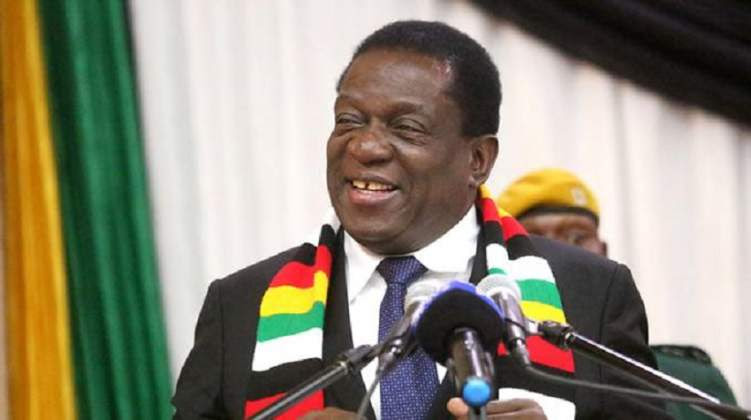|
Getting your Trinity Audio player ready...
|
President Emmerson Mnangagwa has called upon the private sector, civil society, and other stakeholders to join the government in the fight against corruption. He has urged them to set up integrity committees within their organisations.
“The anti-corruption fight is a collective responsibility. Government cannot go it alone,” he told delegates at the annual conference and 50th-anniversary celebrations of the Chartered Governance Institute Zimbabwe on Friday in Victoria Falls.
“I, therefore, call upon the private sector, civil society, and other stakeholders to also prioritise transparency and accountability through in-house anti-corruption efforts such as the setting up of similar integrity committees,” he said.
He said the Integrity Committees being set up at public institutions as an effective tool to prevent corruption and promote good governance in government ministries and agencies, parastatals, state enterprises, and local authorities underscored the importance government attached to improving governance frameworks and strengthening actions to improve the prevention, detection and sanctioning of corruption.
He congratulated CGIZ on its golden jubilee, rebranding from the Institute of Chartered Secretaries and Administrators in Zimbabwe (ICSAZ) to the Chartered Governance and Accountancy Institute in Zimbabwe and associate membership of the International Federation of Accountants.
The rebranding of the institute is in line with the rebranding of the international institute, now known as the Chartered Governance Institute Global.
The President challenged members of the institute to partner government and help the boards of public entities adopt and implement good corporate governance principles.
“You should demonstrate your role as trusted advisors by also playing your part in ensuring the success of our National Development Strategy-1 and the Devolution and Decentralisation Agenda,” he said.
“Your unique position enables you to make a positive contribution to our economic development at all levels of our governance strata,” he added.
The theme of the institute’s conference was ‘Reset – Re-ignite – Refocus. Towards Vision 2030: Governance and Accountancy Professionals Challenged’.
Throughout the conference, officials of the Institute challenged members of the institute to contribute to the nation’s vision of making Zimbabwe an upper-middle-income economy by 2030.
President Mnangagwa highlighted the fact that the institute’s mandate encompassed both corporate governance and accountancy.
“I, therefore, challenge you to effectively play your professional role and provide strategic oversight within your sector, respective organisations, and the nation as a whole as we all accelerate national economic development in our beloved country,” he said.
He said the institute’s conference came at a time when Zimbabwe is enjoying brighter socio-economic prospects.
“These are a result of the positive and far-reaching impacts of my government’s multi-pronged reforms across all sectors, leading to the stabilisation of the economy with budget surpluses over the past two years, notwithstanding the domestic and global challenges due to the Covid‑19 pandemic.
“This has culminated in the reorganisation of supply chains, setting up of remote operations and implementation of bold financial decisions among other actions,” he said.
He acknowledged that some actions might be painful even if they were the right thing to do. He said the Covid-19 pandemic had presented a window to reset collective organisational and national culture, ethics, and expectations.
“It also gives us an opportunity to institutionalise heritage-based norms and values that are more balanced, just and equitable as encapsulated in the ubuntu philosophy.
“Through such a paradigm shift and re-focus, the governance and accounting professionals are urged to ensure sustainable development, increased production and productivity, efficient use of resources, and ultimately durable economic growth and prosperity,” he said.
The culture and work ethic of the Second Republic should give impetus to governance and accounting professionals to build better, more resilient companies and institutions, he said.
“Our national determination and culture of adaptability to date is a demonstration that in unity, peace, and harmony we can achieve seemingly impossible development targets.
“Going forward as a profession, you are challenged to expand your horizons and take up the weighty responsibility of consolidating the gains we are making, always informed by the national interest,” he said.
He said that by focusing on efficiency, flexibility, agility, and building resilience, corporate governance and accountancy professionals could play their part in ensuring Zimbabwe does not experience “Covid-19 induced economic growth slippages”.
“Let us all play our part in maintaining the upward economic growth trajectory,” he said.
He added that emphasis should be placed on capacity building, improving infrastructure, strengthening the “innovation ecosystem” and facilitating access to digital connectivity in order to increase production and productivity.
He commended the institute for embarking on public sector accountancy and capacity-building programmes.
“The new normal demands that we refocus. Let us always be prepared, capitalise on our core strengths, digitalise, embrace sustainable clean energy and technology and also innovate,” he said.
Good governance, accountability, and transparency were fundamental prerequisites for sustainable socio-economic growth, he pointed out.
“Sadly, however, we have in the past witnessed corporate governance failings in both the public and private sectors, which border on fraud and criminality,” he said.
Following the President’s address, Reserve Bank Governor John Mangudya and Zimbabwe Anti-Corruption Commission chairperson Justice Loice Mutanda-Moyo briefed the President and delegates on what their institutions were doing to maintain economic stability in the case of the central bank and to curb corruption in the case of the Zimbabwe Anti-Corruption Commission.






